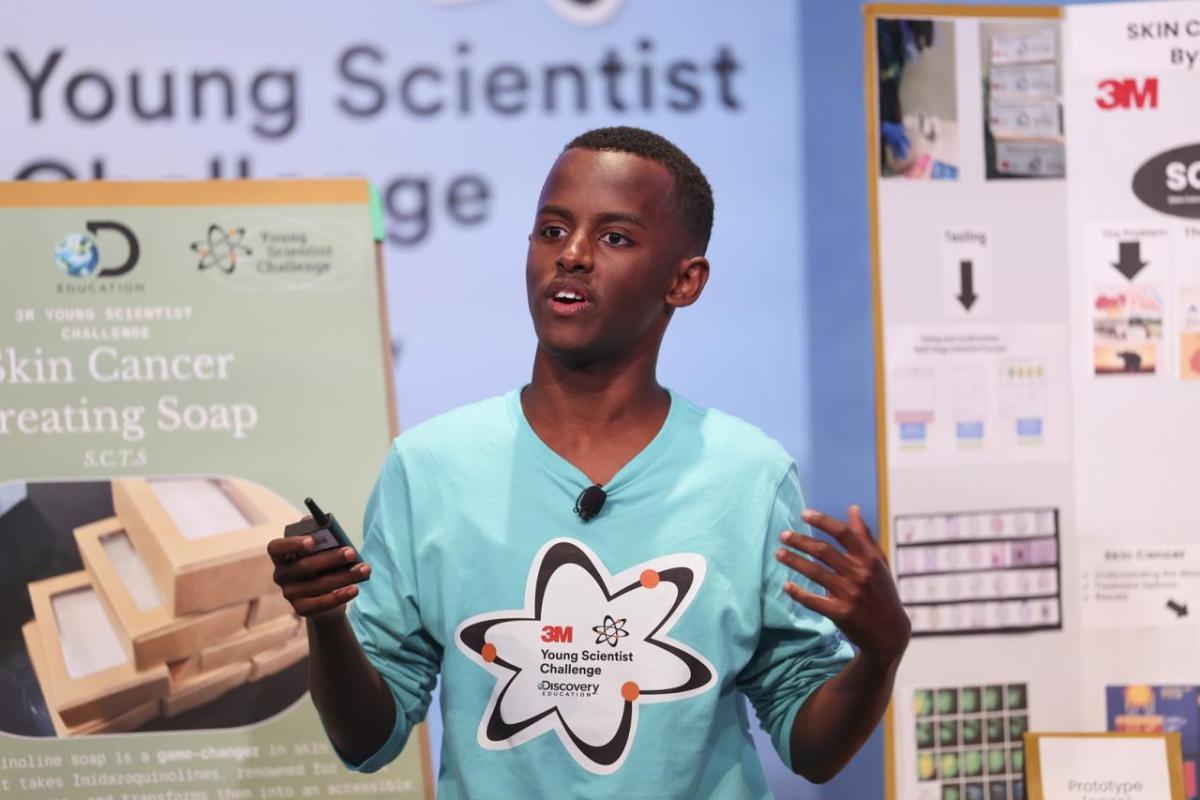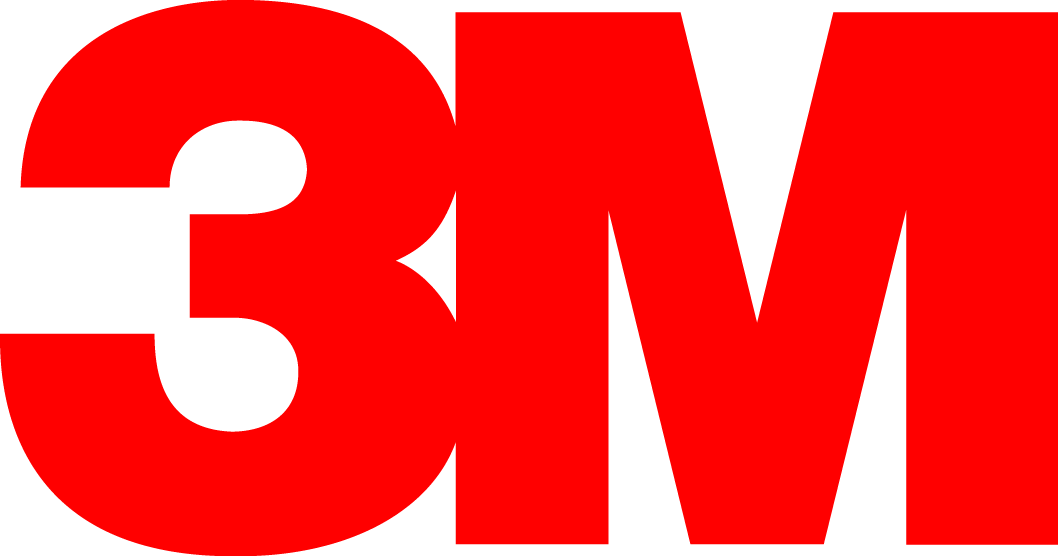Where Are They Now? 3M Young Scientists Are Changing the World One Innovation at a Time

Originally published on 3M News Center
The pursuit of becoming a scientist often starts with seeing something, wondering how it works and why. Science thrives when it’s rooted in deep curiosity and a desire to solve a problem—characteristics exemplified by the finalists for the 2024 3M Young Scientists Challenge.
Designed to help nurture the next generation of scientists, 3M and Discovery Education have hosted the Challenge since 2008. The company has awarded hundreds of thousands of dollars in scholarships, paired students with world-renowned scientists to give them real-world insights and delivered much-needed resources to millions of students, teachers and families.
Before the next America’s Top Young Scientist is announced on Tuesday., Oct.15, 3M is highlighting four prior Challenge participants who remain dedicated to science and solving global challenges.
A clean approach to fighting cancer
Heman Bekele of Fairfax, Virginia, is the reigning America’s Top Young Scientist from 2023. Since winning the competition, Bekele has filed for a U.S. patent, collaborated with a Johns Hopkins University professor in clinical trials, appeared in national media interviews…and completed his freshman year of high school.
His innovation? A specially formulated bar of soap that has the potential to treat skin cancer, using lipid nanoparticles that activate the body’s natural immune cells. He calls it Skin Cancer Treating Soap (SCTS) and says he was inspired by the impact of the powerful sun in his native Ethiopia, where he lived until age 4.
Since his 3M Young Scientist Challenge win, Bekele has been named TIME’s 2024 Kid of the Year, nominated for an IPO Education Foundation for Inspiration Award, honored at the Miami-Dade College STEAM Expo, presented at the annual Congress of Future Medical Leaders, and spoke at a White House Power Up event.
Bekele is focusing on his education, but he also hopes to create a nonprofit organization by 2028 that can help bring skin cancer treatment to more people. He plans to apply a large portion of his Challenge prize money toward developing his soap invention, but he’s saving some for college as well, as he hopes to study to be an electrical engineer. .
AI for forest fire prevention
In 2019, Reshma Kosaraju, Saratoga, California, was a Young Scientist Challenge finalist, earning recognition for creating a predictive model that uses machine learning and neural networks to predict forest fires with nearly 90 percent accuracy. She remembers having to wear a mask at school when the 2018 Camp Fire (the most destructive wildfire in California's history) raged more than 200 miles away from her home.
“I realized that if I could pull this off, the results could be quite impactful in terms of how many lives we can save and how much we can help the environment,” she told TIME for Kids.
According to the National Interagency Coordination Center, more than 39,000 wildfires have taken place in 2024, burning more than 1.3 billion acres. Major fires can destroy communities, and their smoke can drift hundreds of miles, causing adverse health effects to those exposed. Predicting where fires may break out can help people get out of harm’s way and direct firefighters to hot spots for earlier suppression.
In the wake of her achievement, Kosaraju was invited to a panel at the 2022 NASA imaginAviation event. She graduated high school in spring 2024 and is now a member of the class of 2028 at MIT, where she studies computer science, brain and cognitive sciences.
Developing apps with purpose
2017 winner Gitanjali Rao is a sophomore at MIT. Her challenge entry was a mobile app, “Tethys,” that uses Bluetooth connection to speed the detection of lead in water, but that’s only one facet of her enthusiasm for science. After Tethys came “Kindly,” which uses AI to combat social media cyberbullying, and “Epione,” an app that aims to speed the diagnosis of addiction to prescription opioids.
Since taking top honors in the 3M competition, she has amassed a shelf of honors that would befit someone many times her age; she was named TIME’s Kid of the Year in 2020, been honored at a “Girls Leading Change” celebration at the White House, was named to the Forbes 30 Under 30, won the Muhammed Ali Humanitarian Award, and has been named a UNICEF Youth Advocate. Like Bekele, she presented at the Congress of Future Medical Leaders, and she’s been interviewed by PBS and on Good Morning America.
An avid promoter of STEM-based activities in schools, clubs and communities around the world, Gitanjali hopes to create global change by starting an innovation movement of teens looking to make a difference. As part of these efforts, her story was featured in Not the Science Type, a four-part docuseries addressing negative stereotypes and the need for greater diversity, equity and inclusion in STEM fields.
From America’s Top Young Scientist to CEO
It’s been almost a decade since Hannah Herbst won the grand prize in the 2015 Young Scientist Challenge, when as an eighth grader, she pioneered the Ocean Energy Probe to provide both stable energy and fresh water to developing countries.
She went on to study at Florida Atlantic University, where she worked to develop a reusable, antibacterial bandage for post-operative patients that drew on the properties of shark skin.
Now the 2020 college graduate is the founder and CEO of Golden Hour Medical, which provides innovative equipment that bystanders can use to halt blood loss in the immediate aftermath of traumatic injuries. She developed the company’s signature product, the Auto TQ tourniquet, in collaboration with 2017 Young Scientist Challenge finalist Devin Willis.
Like Rao, Herbst was a Forbes 30 Under 30 honoree, and she has been invited to speak at the United Nations, the USA Science and Engineering Festival, the Social Innovation Summit, the National Science Olympiad Competition, and the World Science Festival. She’s also been featured in Business Insider and on Good Morning America.
The future is bright for STEM talent
3M will continue to follow these young minds with pride as they move forward in their scientific journeys. While each is paving his or her unique path, they are connected by a shared love of science that took root early in life—and the first-hand knowledge of just how important and rewarding a STEM education can be.
To follow along with the 2024 Young Scientist Challenge, join us live on October 15.

